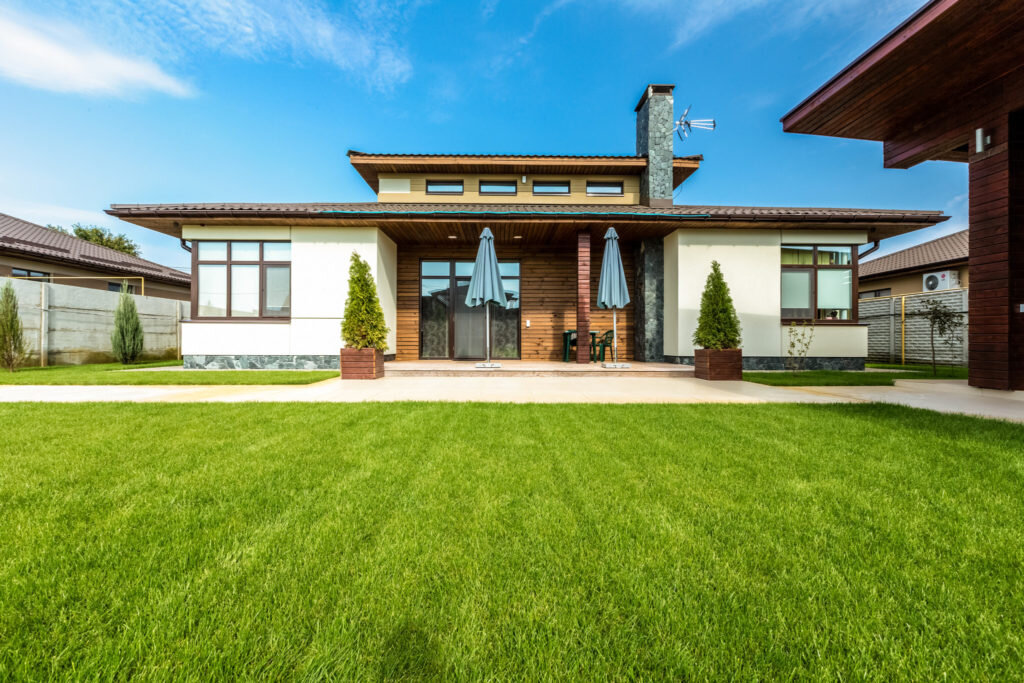There are three values for any home on the market: What the seller thinks it’s worth, what the buyer thinks it’s worth and what a professional appraiser will think it’s worth. The key to a successful purchase is to get those three numbers to align.
You never want to assume that the asking price of a home is also its fair market value. Home values are somewhat subjective and always changing, so understanding how home values are calculated and what factors impact them can help you make a sound real estate investment.
Buyers should always do their research, taking time to determine the market value of a home before making an offer. Otherwise, you risk overpaying.
What is market value?
Simply put, market value is what a fully informed, willing buyer would pay for a home. It’s an amount informed by prices other buyers have recently paid for nearby, similar homes — called comparable homes.
What are comps in real estate?
Comps (short for comparables) are similar, recently sold properties that agents and appraisers use to help determine the value of a home. Comps are used for multiple purposes: to determine the listing price of a home about to list on the market, to help buyers determine a fair offer price and to help an existing homeowner find out the current value of their property and potential equity.
Comps usually consider five key criteria when calculating a home’s value:
Timeline: In a typical market, comps include homes sold in the past three to six months.
Location: Comps should be pulled from the same neighborhood, and in close proximity to the home in question. In an urban area, comps are usually within a mile or so. In rural areas, the radius comps are pulled from will be larger.
Home size: Comps should have the same number of bedrooms and bathrooms, same number of stories and a similar square footage. The lot size and presence of a garage or basement should be similar, too.
Features: Comparable homes should have similar amenities and level of finishes and updates.
Age: The homes being compared should be roughly the same age. Newer homes have newer designs, layouts, systems and appliances, which can increase value.
How comps determine home value
In order to determine a home’s value using comps, three to five comps are collected and grouped together. Then, a report is generated determining a market value, based on the sale prices and details of these homes. You could get two types of reports, based on who is doing the calculations:
- Comparative Market Analysis (CMA): This is a report typically generated by a real estate agent, used to come up with an accurate list price/estimate of a home’s sale price.
- Appraisal: This is a report generated by a licensed appraiser and it’s typically used for financing approval.
Keep in mind that the market value you receive from your agent or an appraiser can differ depending on a few factors.
Market speed: If your local real estate market is moving slowly, you might have to depend on comps that are older or less relevant, which could affect the results.
Comp selection: When multiple relevant comps are available, different agents or appraisers might choose to use different comps, which can affect the outcome slightly.
Valuation of features: The agent or appraiser will add or subtract value based on the features of a specific home, and different agents or appraisers may assign slightly different values to home features.
Subjective human nature: CMAs and appraisal reports depend on humans to evaluate and calculate the home’s value, which means you won’t get the same outcome every time. Remember, the true value of a home is how much a buyer is willing to pay for it.
What’s valuable to one buyer isn’t valuable to another
The value of some home features just comes down to individual buyer preferences. If a swimming pool is factored into the price of a home but you plan to just fill it in and re-landscape, it doesn’t make sense to pay extra for it. If you love new carpeting, it may be worth paying a little more for a house with new, high-end, wall-to-wall carpet. But if you’re going to tear it out to install hardwoods, it’s not. If your idea of home cooking is popping something in the microwave, you probably don’t want to pay a premium for a gourmet kitchen when a nice, reasonably sized one would suit you just fine.
Key factors that influence home value
Home values are usually based on comps, but it’s important to consider a home’s key factors when choosing comps to use. For instance, if a similar, nearby home sold recently, but it’s in a slightly better location, it’s probably worth more. How much more? That’s up to the buyer to determine.
Location
Many features of a home can be changed by the owner — like finishes and even home size. But, you can’t change where the home is located. That’s why location is such an important factor in a home’s value. Outside of standard market appreciation, a home’s land will only increase in value if the area around it improves. For example, 60% of buyers say being in a walkable neighborhood is very or extremely important, according to the Zillow Group Consumer Housing Trends Report 2019.
Here are key location factors that can increase a home’s value:
- Proximity to urban core
- Cul-de-sac location or dead end (less traffic)
- Farther away from railroad tracks, airports, freeway noise and power lines
- Near parks or green spaces
- Sidewalks and walkability
- Proximity to public transit
- Waterfront, water or mountain views
Job market
When the job market is strong and incomes are growing, people may look to buy a home, or move into a newer or larger home, increasing the demand for homes and boosting competition among buyers.
Property taxes
Budgeting buyers look at their monthly housing payments including taxes, so homes with very high property taxes can be out of reach for some buyers. However, property taxes help pay for public services that benefit the local community. As a buyer, you’ll have to determine the value of savings versus local benefits.
Interest rates
Buyer demand tends to be higher when long-term interest rates are lower, as low interest rates give buyers more purchasing power. Conversely, when interest rates are high, buyers may have a harder time paying off other debt, which can impact their ability to buy a home. When demand is lower, housing prices follow suit.
Home maintenance
While not directly related to a home’s value, buyers may also want to consider any maintenance needs they’ll have to pay, especially in the first year of ownership. For example, will they have to replace the water heater or service the HVAC system?
The consequences of valuing a home incorrectly
For buyers, the biggest risk in valuing a home incorrectly is overpaying. Other consequences include loosing financing after appraisal or not getting your offer accepted at all.
Overpaying
If you value a home too high, you may set yourself up to be underwater on your investment, especially if market conditions are volatile. Plus, the more you borrow, the more you have to repay!
Low appraisal
Even if you and the seller agree on a price, the appraiser’s valuation will determine the amount your lender will loan for the property. When you agree to pay too much, it can be hard to get financing. If the appraisal comes in too low, it’s possible you will have to come up with a larger down payment, or you risk the deal falling apart.
Missing the opportunity
There’s also some risk in valuing a home too low. If you miscalculate, the seller may not accept your low offer and you may have to move on to another home.
What’s worth more: the home or the land?
Generally speaking, if you’re purchasing a newer or well-maintained home, the home is likely worth more than the land today. But in 50 years, without upkeep, the land would probably be worth more. The physical structure, appliances and materials usually depreciate over time, assuming everything in the home is left original.
Of course, most owners continue to update and repair their homes over the years. So, the longer you stay, the more you will inevitably have to improve to maintain the value of the home itself. The cost of labor and materials inflates steadily over time, so the value of improvements is moderately predictable.
The value of land however, is much more volatile and difficult to predict. A home within close proximity to desirable shops, restaurants, schools, city centers or attractions will generally have a higher value compared to a home farther from these perks. But those amenities and their desirability can change over time.
If you’re buying a home with a view or near a long-standing city center then odds are good that its value will appreciate, but land value is never guaranteed.






